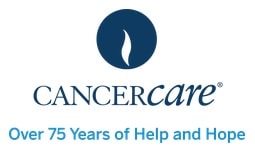Dear Friend
You need as much self care as your beloved does. It’s not selfish. If you take care of yourself, you have a better chance of coming through this experience finding the hidden moments of peace and joy.
Dear Friend
There are many kinds of caregivers—family members, close friends, home healthcare people, and health professionals who do cancer caregiving work. Each kind of caregiving has its own joys and challenges. On this page we’ll address the most intimate caregiving—care provided by a spouse, partner, family member, or other loved one.
We know from over three decades of work in the Commonweal Cancer Help Program that a cancer diagnosis can be at least as hard on the spouse, partner, parent, or child as it is on the person with cancer. But while the person with cancer tends to get the focus of attention, the person doing the caregiving is often considered a distant second.
This really doesn’t make sense. First, the pain and suffering can be just as great. Second, the stress of a deeply impacted life can be just as difficult. Third, it is very easy to get exhausted or sick from the pain, suffering, and stress of caregiving. Finally, if you as the caregiver burn out, it deeply impacts the person with cancer.
For all of these reasons, it isn’t selfish at all for you to acknowledge your own pain, suffering, and stress, and do whatever you can to bring nourishment, peace, and joy into your own lives as a priority and on a regular basis. Treat yourself kindly. Take care of your own mind, body, and soul. Consider our 7 Lifestyle Practices for yourself. So often all the love and support is directed to the person with cancer, and the caregiver needs it, too.
There’s also a lot to learn here for family members and caregivers and friends who want to make a difference. A lot of well-meaning people want to convince their loved one with cancer to eat well, move more, meditate, do yoga and the like. We believe you can gently offer those thoughts—with an emphasis on gently. But it is far better, instead of being preachy about self care, to ask a very different question:
How can I help?
I had a good friend, the late Mimi Mindell, who went with a friend of hers to every doctor’s appointment and every chemo and radiation session. Love and support shows itself best in concrete ways. Kindness is love with its workboots on. Real caring means doing things like cooking, shopping, running errands, or driving someone to treatment sessions. These are far more genuine acts of care than telling someone they should do some diet or other practice they aren’t drawn to.
It can be excruciatingly hard to see someone you love be in great pain. Or to live with them as they undergo sometimes terrible treatments. It is a profound discipline to find ways to be with these experiences without suffering greatly yourself in ways that do not help and may indeed hurt the person you love.
But somehow, if we accept that as caregivers we can move into this new period of life, we can find—as our beloved with cancer can find—that we are deepened and ensouled by our suffering.
Carl Jung says that it is only through suffering that consciousness grows. That is my own experience.
Wishing you well,
Michael
Michael Lerner
Michael Lerner is co-founder of Commonweal and co-founder of the Commonweal Cancer Help Program, Healing Circles, The New School at Commonweal, and CancerChoices. He has led more than 200 Commonweal Cancer Help Program retreats to date. His book Choices In Healing: Integrating the Best of Conventional and Complementary Approaches to Cancer was the first book on integrative cancer care to be well received by prominent medical journals as well as by the patient and integrative cancer care community.
Michael Lerner
Michael Lerner is co-founder of Commonweal and co-founder of the Commonweal Cancer Help Program, Healing Circles, The New School at Commonweal, and CancerChoices. He has led more than 200 Commonweal Cancer Help Program retreats to date. His book Choices In Healing: Integrating the Best of Conventional and Complementary Approaches to Cancer was the first book on integrative cancer care to be well received by prominent medical journals as well as by the patient and integrative cancer care community.
Caregiving at a glance
Effective caregiving is essential to the physical and emotional well-being of people with cancer. While it may feel very difficult as a caregiver to tend to your own needs as well as those of your loved one, nurturing your resilience and well-being will benefit your partner as much as yourself.
Many find that caregiving involves challenges and rewards. If you become exhausted, you won’t be able to do as much for your partner. You may experience times when making time for yourself is impossible, but taking time for yourself when opportunities arise will nurture you and provide relief. During these times, you may share your feelings with others, seek and accept help with practical tasks, and acknowledge and tend to your physical, mental, emotional, and perhaps spiritual needs.
Several strategies foster effective caregiving and may help to address common challenges. If you experience emotional or physical distress such as anxiety, depression, appetite changes, and/or sleep disruption, you may find help from conventional, complementary, and self-care approaches.
You may find inspiration or guidance from stories written by caregivers about their journeys caring for their loved ones with cancer.
Words of guidance
Read words of inspiration and guidance from Michael Lerner, CancerChoices co-founder and author of Choices in Healing.


